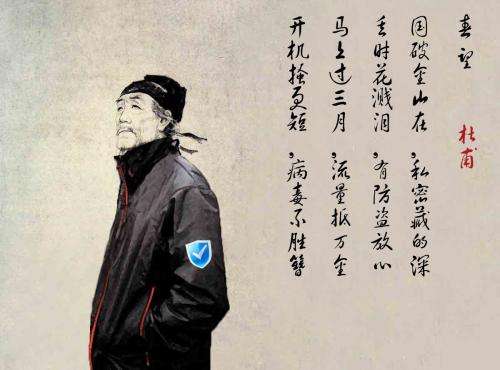Du Fu
3 min readDu Fu or Tu Fu(712-770)was a prominent Chinese poet of the Tang Dynasty.
Along with Li Bai,he is frequently called the greatest of the Chinese poets.His own greatest ambition was to help his country by becoming a successful civil servant,but he proved unable to make the necessary accommodations.His life,like the whole country,was devastated by the An Lushan Rebellion of 755,and the last 15 years of his life were a time of almost constant unrest.
Initially unpopular,his works came to be hugely influential in both Chinese andJapanese culture.He has been called Poet-Historian and the Poet-Sage by Chinesecritics,while the range of his work has allowed him to be introduced to Western readers as”the Chinese Virgil,Horace,Ovid,Shakespeare,Milton,Burns,Wordsworth,Beranger,Hugo or Baudelaire”.

Poet Sage
A second favourite epithet of Chinese critics is that of“poet sage”,a counterpart to the philosophical sage,Confucius.One of the earliest surviving works,The Song of the Wagons(from around 750),gives voice to the sufferings of a conscript soldier in the imperial army,even before the beginning of the rebellion;this poem brings out the tension between the need of acceptance and fulfilment of one’s duties,and a clear-sighted consciousness of the suffering which this can involve.These themes are continuously articulated in the poems on the lives of both soldiers and civilians which Du Fu produced throughout his life.
Du Fu’s compassion,for himself and for others,was part of his general broadening of the scope of poetry:he devoted many works to topics which had previously been considered unsuitable for poetic treatment.And he wrote extensively on subjects such as domestic life,calligraphy,paintings,animals and other poems.
Technical Excellence
Du Fu’s work is notable above all for its range.Chinese critics traditionally used the term complete symphony,a reference to Mencius’description of Confucius.
Although he wrote in all poetic forms,Du Fu is best known for his lishi,a type of poem with strict constraints on the form and content of the work.About two thirds of his 1500 extant works are in this form,and he is generally considered to be its leading exponent.His best lishi use the parallelisms required by the form to add expressive content rather than as mere technical restrictions.
Translation
There have been a number of notable translations of Du Fu’s work into English.
The translators have each had to contend with the same problems of bringing out the formal constraints of the original without sounding laboured to the western ear(particularly when translating lishi),and of dealing with the allusions contained particularly in the later works.One extreme on each issue is represented by Kenneth Rexroth’s One Hundred Poems From the Chinese.His are free translations,which seek to conceal the parallelisms through enjambement and expansion and contraction of the content;his responses to the allusions are firstly to omit most of these poems from his selection,and secondly to”translate out”the references in those works which he does select.
An example of the opposite approach is Burton Watson’s The Selected Poems of Du Fu.Watson follows the parallelisms quite strictly,persuading the western reader to adapt to the poems rather than vice versa.Similarly,he deals with the allusion of the later works by combining literal translation with extensive annotation.








